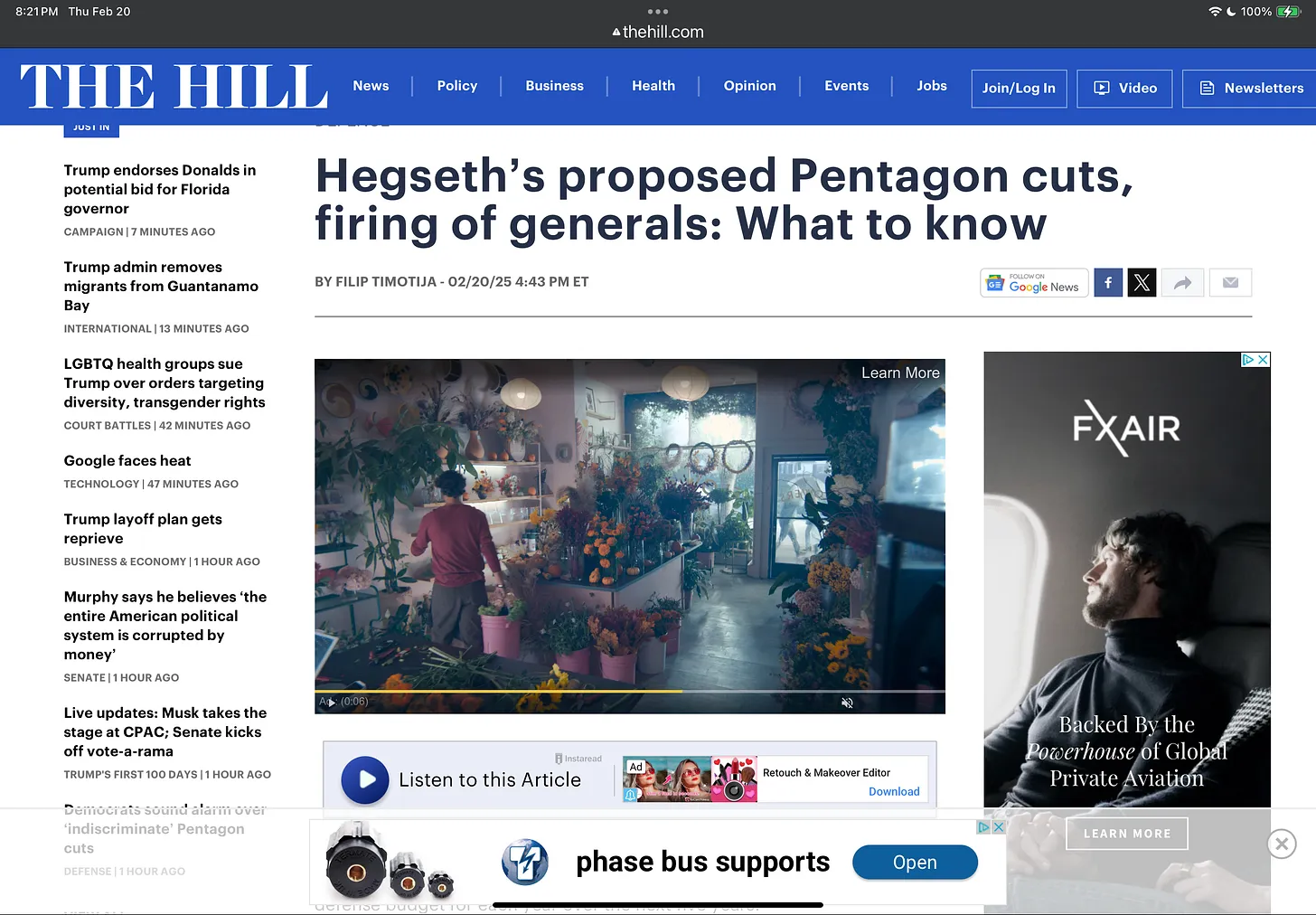
In mid 2023 the United Services Automobile Association (USAA) notified its members that the company's president and board of directors would stand for reelection later that year. USAA's fiduciary priorities, service to member clients, and enthusiastic support of DEI and ESG programs provoked concerns about the direction and health of the company. Concerted attempts to communicate these misgivings directly to USAA's President and Board of Directors proved to be an utter failure.
Rather than respond to specific or general complaints, sine voce became the preferred method of corporate communication to the USAA customer base, who were left no other choice but to make their grievances public. Registered letters from flag officers, press releases from STARRS, and a number of articles (1) (2) (3) published in national media sites detailing the ascendency of the DEI culture at USAA came to naught. The elections came and went without a word from USAA leadership, who were all reelected with great fanfare to maintain the company's course.
USAA homeowners and auto policy rates skyrocketed late in 2023 after reinstatement of the board. At the advent of 2024 USAA notified members that only a modest annual bonus could be expected, and to make matters worse, a federal judge in San Diego granted class action status to a lawsuit that could affect 200,000 policyholders who contend USAA discriminated against enlisted personnel.
The causes of USAA's downward trajectory are convoluted, but the influence of powerful, respected individuals who chair the boards of corporate and government agencies cannot be discounted. In September 2022 Secretary of Defense Lloyd Austin announced a new Defense Advisory Committee on Diversity and Inclusion (DACODAI), whose express purpose is "to provide advice and recommendations on matters and policies relating to the improvement of racial/ethnic diversity, inclusion, and equal opportunity within the DOD with the primary focus on military personnel." The committee's charter is analogous to the Intergovernmental Panel on Climate Change (IPCC)—the express purpose of the organization is to advance preferred ideologies, not to look for solutions that counter the narrative.
Secretary Austin selected General (ret) Lester Lyles, who has led or served on the boards of USAA, General Dynamics, DPL, Inc., KBR Inc., and Precision Castparts Corporation, to serve as chairman of DACODAI. When accepting the position, General Lyles pledged his effusive support of DACODAI objectives:
"It is an incredible honor to be appointed as the Chair of the DACODAI. This year marks a historical event as the first committee to provide the Secretary of Defense with advice and recommendations to improve racial/ethnic diversity, inclusion, and equal opportunity as a force multiplier in the military. I look forward to working with my fellow committee members to help the Defense Department so that our national security is strengthened by the full participation of diverse and inclusive environment with service members of every background."
General Lyle's passionate commitment to DEI at the organizational level is unequivocal. "I spend a lot of time nowadays either advising or listening to organizations about diversity and inclusion. Whether it's companies that are trying to improve their journey towards diversity and inclusion, whether it's the Air Force trying to improve its diversity and inclusion or whatever it might be."
General Lyles served as a USAA board member for fifteen years from 2004 until 2019. His tenure as Chairman of the Board of Directors from 2013-2019, ushered in a period when USAA experienced a marked transition of its business model that prioritized DEI, ESG, and social credit scoring. The financial service industries championed the dubious claim that diversity and corporate success were intertwined and supported the contention with controversial studies to embed DEI in the private sector and military. USAA's allegiance to DEI ideology is much to blame for changing the company's successful, 100 year old business model and triggering the events that precipitated the company's current problems.
When successful organizations like USAA and the US armed forces deviate from proven strategies, abandon common sense, lose focus on the primary mission, and fall prey to DEI's destructive ideology and those charismatic personalities who promote its message, the results speak for themselves.

























I was so tired of getting wrong information that directly affected my relationship with USAA (I became a member in 2010) I switched to Charles Schwab. No more hour long waiting to speak with customer service and no more bad/incorrect information. USAA was top notch and then no longer. I wondered why the bank was destroying itself. This article explains the reason. Thank you and now I know I made the correct decision when I redirected my monthly direct deposits to Charles Schwab.
Another casualty(or conquest) of DEI- amazing how many traitors we have to our beloved USA!
The "class of '68"...(billary, holder, W, cheny, Kerry-kohn, algorical, et. al.)
I have been a member since 1970. I've noticed the degradation of service in recent years, too. I was hoping that it would not be DEI or another tail rudder that changed our direction. Thanks for the article.
Looks like the murderer buttf'ers have them now....sad.
Had thought of joining in retirement-NOT A CHANCE NOW!!!
Where do we go now? Is Navy Federal any better? I don't want to give my money to marxists (critical race theorists).